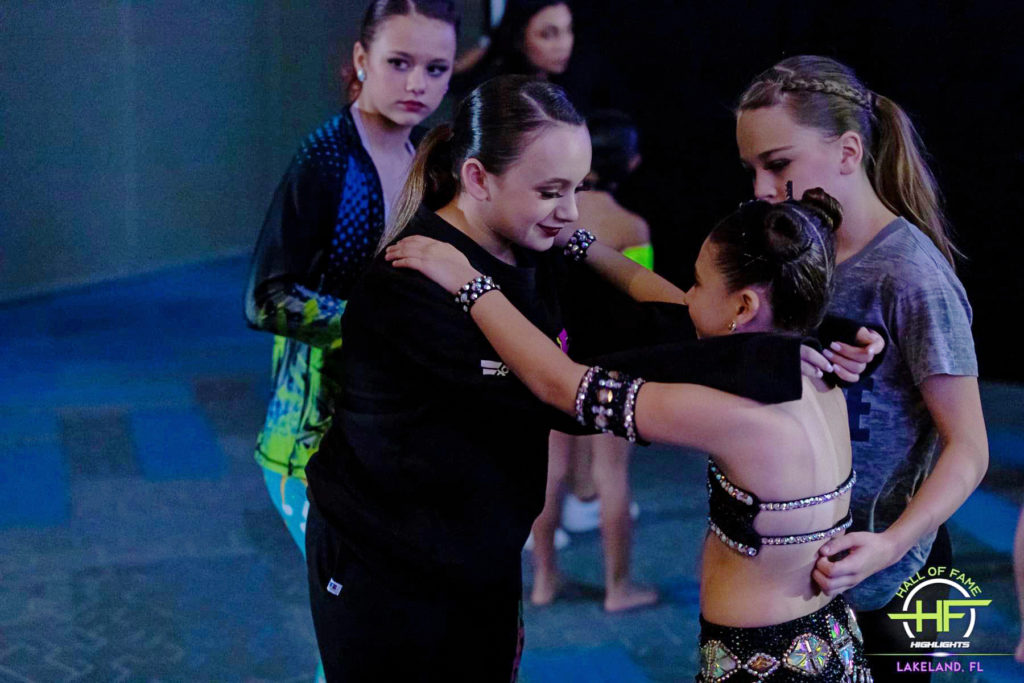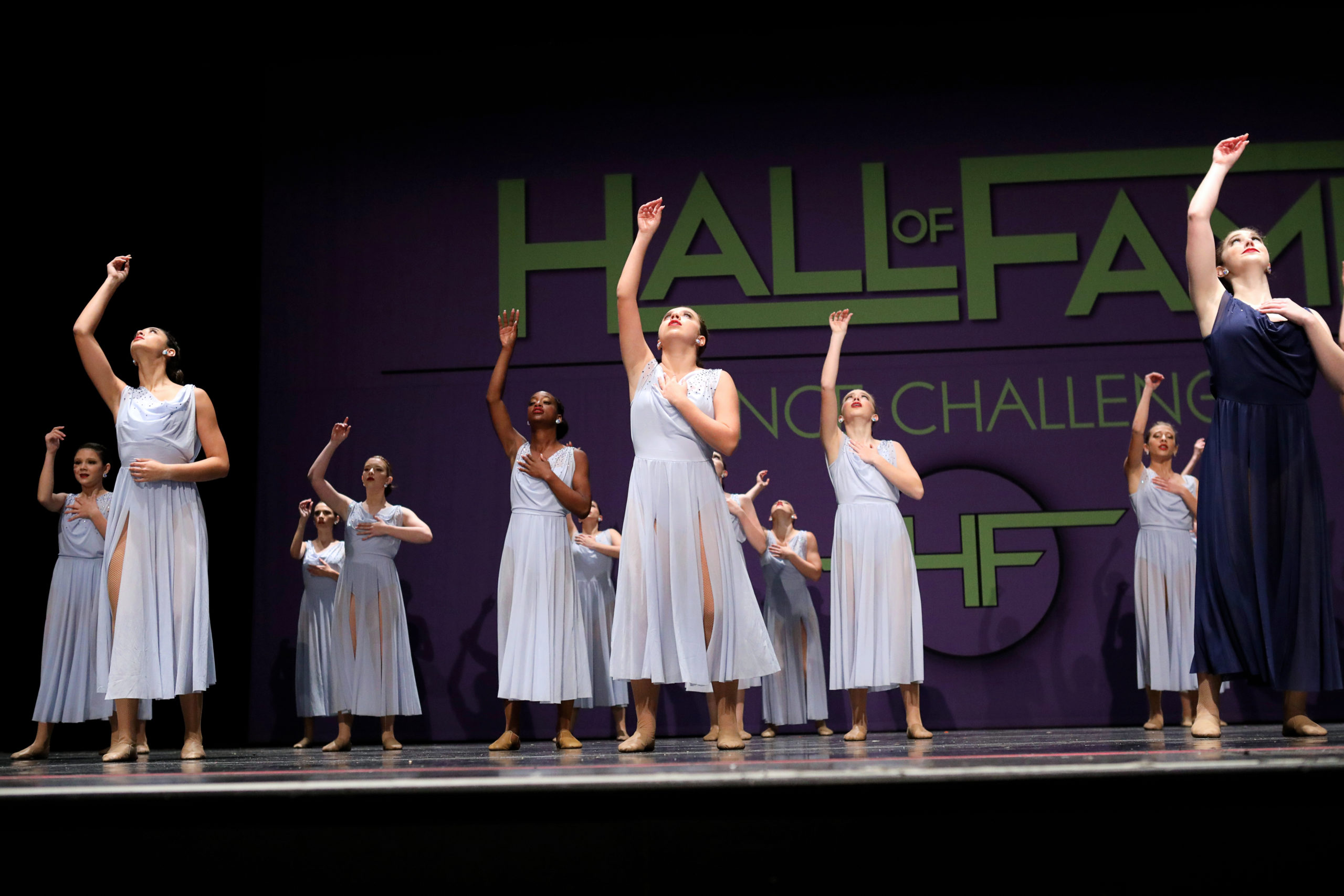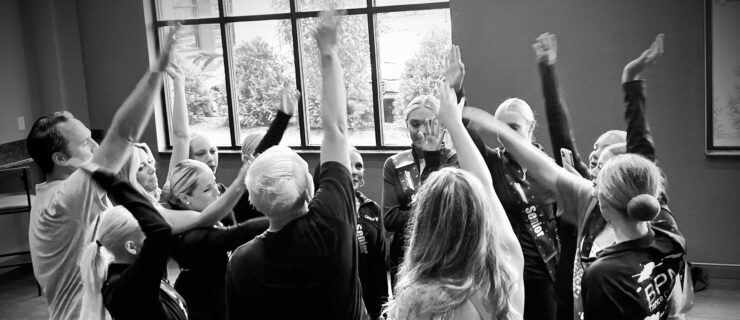5 Keys to Building an Emotionally Healthy Relationship With Competing
Competition dancers are known for being driven and ambitious—but is it possible to focus too much on trophies as the only measure of success? “When competitiveness impacts your mood and your relationships with others, and when it gets in the way of feeling good about yourself, then it’s problematic,” says Dr. Nadine Kaslow, a psychologist who works with dancers and students at Atlanta Ballet. If you’re stuck in a “winning means everything” mindset, here are some ways to break free.
Focus on Excelling— Not Winning
“When you think of competition as being about winners and losers, you’re setting yourself up to feel like a failure,” Kaslow says. “There’s so much you can’t control: how the judges are going to perceive you, how the other dancers will perform. You can’t even control your own performance one hundred percent of the time!”
To relieve some of the pressure of competition, try taking your eyes off the prize. What might that look like? “If you felt better this time than the last time you competed, you were successful. If you found a new energy in your performance, you were successful,” says Robin Dawn Ryan, owner and artistic director of Robin Dawn Academy of Performing Arts in Cape Coral, Florida. When her dancers come offstage disappointed, Ryan immediately urges, “Tell me three great things you did in that routine.” Only once they look for those bright sides will she ask, “What are three things we can work on for next time? What can we learn?”

Set Specific Goals
“Thinking about what you want to do and working toward it—there’s a beautiful satisfaction to that journey,” says Mandy Moore, choreographer on “So You Think You Can Dance,” “Zoey’s Extraordinary Playlist” and the upcoming live-action film of Disney’s Snow White. “Set a goal for yourself that will make you better. It has nothing to do with the studio down the street and nothing to do with the people judging you.”
Perhaps there’s a move you’re itching to master. Or maybe last year you received feedback on your musicality, and you want to demonstrate that you’ve grown. “The work you do in the studio—the hours of training you put in to meet those goals—creates a stronger foundation for the future than any trophy,” Moore says.
Keep Critiques in Perspective
The critiques you receive at competition can help you improve and prepare you for the kind of scrutiny you’re likely to face if you pursue a dance career. Still, it’s okay to take feedback with a grain of salt. A judge’s opinion is just that: an opinion. “Judges’ comments can’t be the be-all-end-all way you measure your talent or your love for dance,” says Moore. “This is four or five humans weighing in on one day—a keyhole glimpse into your total experience as a dancer.”
If a note seems completely out of left field, it may not be as valuable as something you’ve heard before and know you need to work on. “Judges on the same panel can disagree,” adds Ryan. “I don’t put much weight into a comment until I hear it repeatedly.” Always talk to your teachers if you need help discerning which critiques will be most useful as you move forward.
Build Your Community
“If you’re holding a lot of negativity and tension around competition, you won’t be able to create meaningful relationships with your peers,” Kaslow says. “And in life, we need relationships.” It’s not just about the mental well-being that comes from feeling camaraderie rather than rivalry. “Your competitor today might be your colleague tomorrow,” Kaslow points out, “or they could give you a job.”
Instead of isolating yourself in your quest for the trophy, reach out. If you loved someone else’s performance, tell them—even (or especially) if you feel it was better than your own. Exchange contact info or follow each other on social media, so you can stay in touch. You never know where those connections might lead you.
Be Okay Either Way
“There’s a healthy way to win and a healthy way to lose,” Moore says, “and they’re almost exactly the same. Congratulate your competitors and show humility. This was two and a half minutes of your life. Maybe it went your way, and maybe it didn’t. But did you enjoy yourself onstage? That’s a win. Finally, remember that you’re lucky to get to go back to the studio to work some more. Tomorrow is a new day.”




